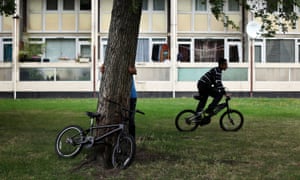
News that the four Tower Hamlets residents whose election petition brought about the removal of Lutfur Rahman as the borough’s executive mayor still face large legal bills arising from their victory adds another layer of absurdity to the great pile of it engendered by the Rahman saga as a whole.
Campaigner Andy Erlam, restauranteur Azmal Hussain, Ukip member Angela Moffat and Labour Party activist Debbie Simone face a six-figure bill from solicitors they retained to recover costs against Rahman they had been awarded by the court, following the former mayor being declared bankrupt.
Their predicament further underlines how unsatisfactory it is that legitimate concerns about the conduct of democracy in the UK had to be pursued by means of the ancient and, in some respects, rather bizarre legal channel of an election petition in the first place. Having triumphed, the four petitioners now face ending up skint for their trouble.
John Biggs, the Labour politician who won a re-run of the voided 2014 election to succeed Rahman as mayor last June, has summed up the situation for the East London Advertiser: “It’s entirely wrong that they are facing this scale of legal bill despite their sacrifice being proved right. The legal system should be applauding them for challenging corruption, not burdening them to the point of bankruptcy.”
It’s worth recalling what election commissioner Richard Mawrey QC did and did not write in his measured and very readable judgement on the petition. He concluded that Rahman had secured his win with the help of “corrupt and illegal practices” involving the payment of canvassers, the false portrayal of Biggs as racist, allocating community grants in a manner that amounted to bribery, the casting of invalid votes and by bringing “undue spiritual influence” to bear on fellow Muslim voters. He annulled the election and banned Rahman from holding office for five years.
He was also quite clear that the court could draw no conclusion about whether enough invalid votes had been cast to have affected the overall result of the election. And, relating to a persistent theme of some of the media coverage of Rahman, he noted that the court had “not heard a shred of credible evidence linking Mr Rahman with any extreme or fundamentalist Islamist movement”.
Some subsequent events are also worth mentioning here. The election court was not a criminal court and in March the police decided there was insufficient evidence that any criminal offences had been committed in relation to the 2014 contest for them to investigate Rahman further. More recently another strand of media coverage of Rahman unravelled, with the Telegraph apologising for a series of articles, most of them written by Boris Johnson’s now former cycling commissioner Andrew Gilligan, which had, in the apology’s own words, suggested that a local businessman was “a willing beneficiary of Mr Rahman’s corruption”. The Telegraph accepts that this was “untrue” and has paid the businessman concerned damages and legal costs.
None of this is to downplay the wrong-doing documented in the election court judgement or to insinuate (as some still do) that Rahman is the blameless victim of racist Muslim-haters. On the contrary, it is to stress that an affair so damaging to the East End and so often clouded by misunderstandings and misrepresentations was always crying out for a thorough and dispassionate investigation by an authority with the right powers to do so.
The election court, nothwithstanding the curiosities of the relevant legislation, provided this. But to secure it the petitioners had to go to risky financial lengths and are still paying the price, despite the bulk of their complaints being borne out. How can that be right?
You can help the four Tower Hamlets petitioners raise funds to meet their legal bills by making a donation here.